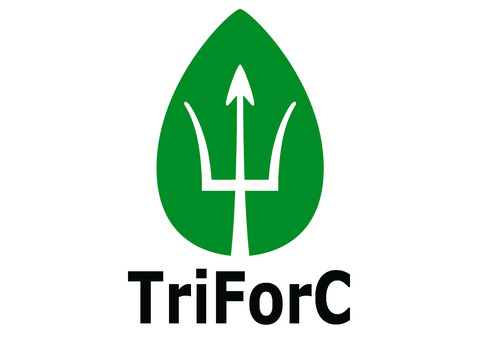
The four-year, EU-funded TriForC (Triterpene’s For Commercialisation) project has come to a close, resulting in the publication of the most extensive and significant algal strain engineering study to date*.
Algenuity, a specialist algal biology company based in Stewartby, UK, was one of 11 international consortium partners tasked with developing synthetic biology methods using algae as a host organism to make plant triterpenes in a sustainable way.
Triterpenes are a diverse class of organic compounds that play a major role in plant defence mechanisms. They often form the basis of herbal medicines and have shown some promise as potential pharmaceuticals.
However, because they are produced in low levels by their natural hosts, it is often difficult to identify and then isolate the bioactive component from the complicated mixture of compounds within a plant. The aim of the TriForC project was to find an environmentally sound way of producing these compounds in industrially-relevant microbial systems.
Andrew Spicer, CEO of Algenuity, explained: “The concept of the project was to use omics-based approaches to identify the enzymes within biochemical pathways, and synthetic biology to express those enzymes in both yeast and algae chassis organisms.
We looked at several different algal strains and the most successful was a diatom called Phaeodactylum tricornutum, which has already been used as a microalgal chassis in synthetic biology. We introduced a biosynthetic pathway into that strain to produce a specific triterpene called betulin, which has received interest as a pharmaceutical precursor for the treatment of certain cancers and HIV.
“The results of the project are truly significant because the Algenuity team was able to express five genes in parallel to achieve the desired end product – a big undertaking considering that most groups aim to express only one gene for a given project. Andrew concluded: “The success of this project clearly demonstrates that metabolic engineering is possible in algae, and we are excited to see where this leads us and others in future studies.”
See more from Algenuity on their website here.
* Sarah D’Adamo, Gino Schiano di Visconte, Gavin Lowe, Joanna Szaub-Newton, Tracey Beacham, Andrew Landels, Michael J. Allen, Andrew Spicer and Michiel Matthijs. Engineering the unicellular alga Phaeodactylum tricornutum for high-value plant triterpenoid production. Plant Biotechnology Journal (2018), pp. 1-13


